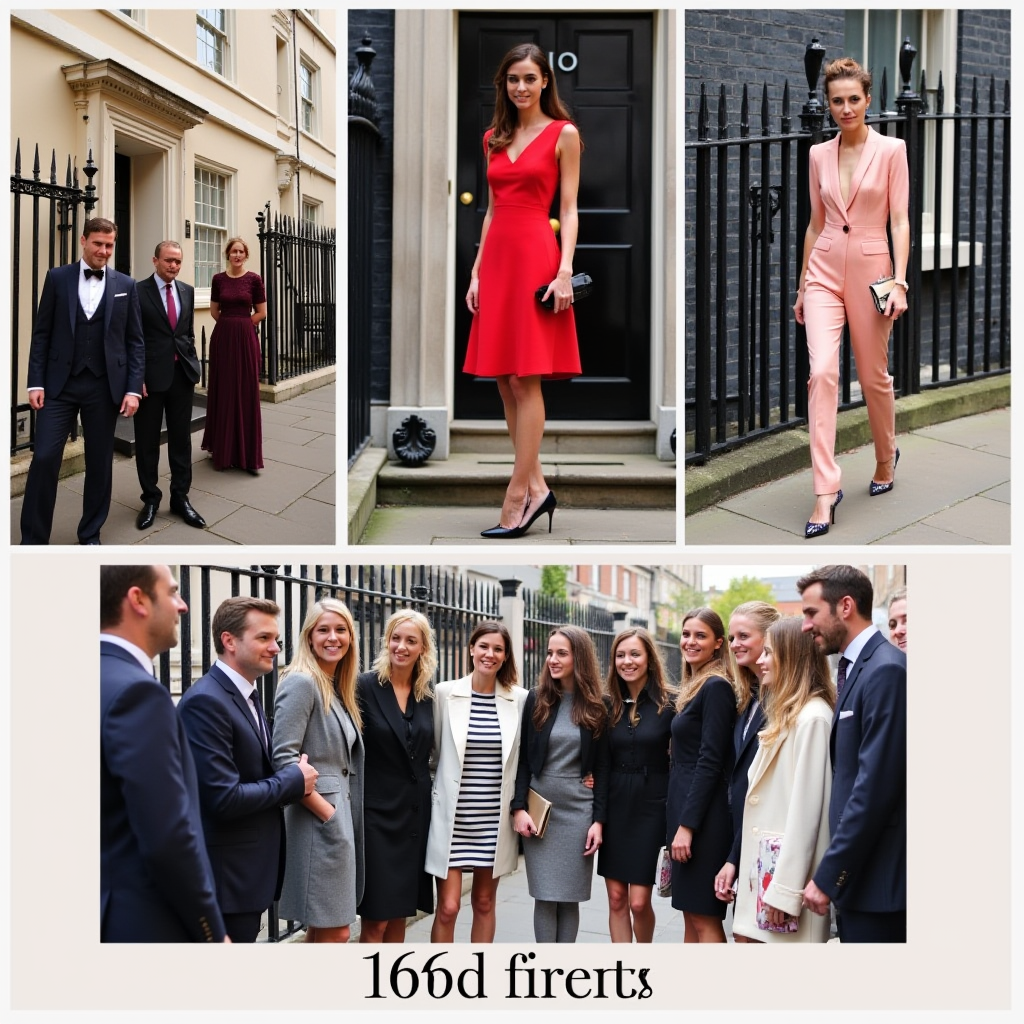The Fashion Industry Gathered at Downing Street to Hear from the Prime Minister on the 40th Anniversary of London Fashion Week

London Fashion Week (LFW) marked a significant milestone this year as it celebrated its 40th anniversary. It was in the early ’80s, during Margaret Thatcher’s time in Downing Street, when LFW took its first steps in an unassuming Kensington car park. Fast forward to today, and the fashion world has come full circle with a gathering at Number 10, hosted by Prime Minister Keir Starmer.
The Evolution of London Fashion Week
Reflecting on LFW’s humble beginnings, it’s fascinating how the event has evolved from its origins in parachute-silk shirts and Dunlop plimsolls to becoming a global fashion powerhouse. Sarah Mower, an industry veteran, reminisces about those early days, highlighting the stark contrast between past and present.
A Season of Innovation
Just months after Labour’s historic victory in July, LFW 2024 concluded with Daniel Lee’s spectacular Burberry showcase. The season was marked by creative innovations including mayo bags and a fresh, bold aesthetic epitomized by Harry Styles’s new look.
A Historic Gathering at Downing Street
After the runway shows, designers and fashion editors converged at Number 10. Keir Starmer’s welcoming gesture marked a new chapter in government-fashion industry relations. The reception was graced by notable figures such as Culture Secretary Lisa Nandy, Caroline Rush, David Pemsel, alongside celebrated designers like Simone Rocha and Erdem Moralıoğlu.
Keynote Address
In his speech, Prime Minister Starmer emphasized the industry’s economic significance, touching on challenges such as business rates and sustainability. He committed to enhancing creativity within education and supporting aspirational pathways for young talents across diverse backgrounds. His address was well-received, highlighting a shift in governmental engagement with the fashion sector.
Culture Secretary Lisa Nandy
Lisa Nandy humorously shared her excitement about fashion being part of her portfolio, underscoring its importance to national identity and economic contribution. Her introduction set a positive tone for the evening’s discussions.
Future Directions for Fashion in the UK
Prime Minister Starmer’s pledge to prioritize creativity signifies an optimistic outlook for fashion education and industry growth. By advocating for increased government support, there is potential for significant strides towards sustainability and innovation within the industry.
The Role of Creativity and Aspiration
- Emphasizing creative skills in the curriculum can inspire future generations to engage with fashion design and related fields.
- Promoting inclusivity ensures that people from all walks of life have access to opportunities within the industry, fostering diversity and creativity.
- Sustainability remains a crucial aspect as the fashion world seeks innovative solutions for environmental challenges.
Conclusion
The 40th anniversary of LFW symbolizes not only its historical significance but also its continued influence on global fashion. With renewed government support, London Fashion Week is poised to lead the industry into a future that values creativity, sustainability, and diversity. As Prime Minister Starmer aptly noted, the days when fashion felt “overlooked or ignored” are over, paving the way for a thriving cultural and economic landscape.